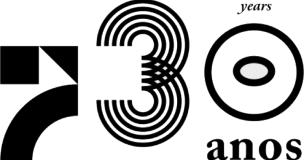Seminário "Cognitive Neuropsychology: A Window into the Functioning of the Mind/Brain"

Professor Alfonso Caramazza, ERA Chair Holder - CogBooster
Entrada livre. Transmissão em direto em youtube.com/@fpceuc/streams.
Abstract:
A major challenge in understanding the functioning of the human mind/brain, aside from its immense complexity, is the relative inaccessibility of the representations that are computed in the course of a cognitive operation, such as recognizing the objects in an event or scene, understanding a sentence, reaching to grasp an object, or deciding which route to take for a walk. Even something as “simple” as reading a word poses major challenges. What are the intermediate representations between the visual shapes of the letters and the recognition of the word and its meaning? We don’t have direct access to those representations and must infer their properties through indirect means such as, for example, measuring how quickly we recognize individual letters versus scrambled letters versus pseudowords versus words. The problem, simply put, is that since we don’t have direct access to intermediate levels of representation all we can measure and analyze is an input-output relationship: for example, the relationship between a visual stimulus and a response such as reading a word or naming a picture. But Nature occasionally creates opportunities for observing more directly the computational role of distinct neural components within a cognitive system through their selective damage in clinical situations. In such cases, we can observe the computational consequences of damage to a specific component of the overall architecture of a cognitive system and infer the nature of intermediate representations within that system. Here I discuss the value and limitations of this methodology – Cognitive Neuropsychology – through several illustrative cases of the insights we have gained about otherwise inaccessible cognitive operations and representations. I will make the case for its indispensability in the armamentarium of cognitive science and neuroscience.





